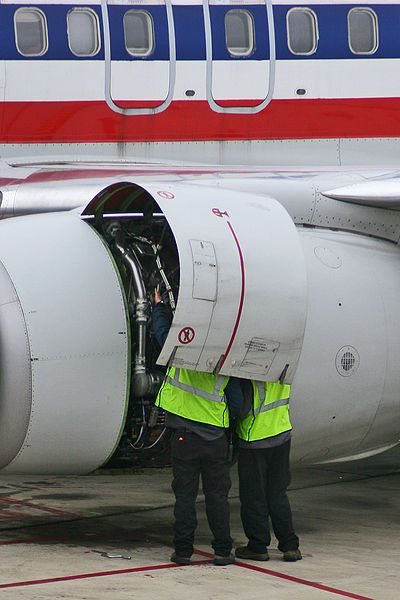Boeing released its first-quarter results on Wednesday, citing a net loss of $355 million.
Although substantial, the numbers were better than analysts had expected—especially in the midst of management shakeups, whistleblower claims and ongoing production delays.
The company’s reputation has taken a hit since the Jan. 5 midair door plug blowout, which led to the grounding of its of its 737-9 MAX fleet. The setback seems to have derailed Boeing in recovering from the two fatal MAX crashes in 2018 and 2019.
“Our first quarter results reflect the immediate actions we’ve taken to slow down 737 production to drive improvements in quality,” said Dave Calhoun, Boeing president and CEO. “We will take the time necessary to strengthen our quality and safety management systems and this work will position us for a stronger and more stable future.”
According to an MSN report, Boeing’s first-quarter deliveries indicated a total shipment of 83 aircraft, including 67 737 jets, three 767s and 13 787 Dreamliner wide-body jets. The total reflects a 47% decrease compared to the same period last year, during which Boeing delivered 130 aircraft.
Despite its challenges, Boeing managed to secure 131 gross orders in the first quarter, maintaining a commercial order backlog of 5,591 planes valued at some $448 billion.



































No big deal. It’s all transitory…
Yeah, they’ll make it up in volume…
Always darkest before the morning…
The sun is still setting…
Might be the morning sun in your rearview mirror…Faith is definitely a hard to come by commodity these days. Yes, I think Boeing is at the nadir of times and new leadership has to pull this one out of the swamp. 3 to 4 months will let the investors know where the future ( not the pasture) lies so we’ll see. I think it’ll work as the product is good and in demand.
Failure is not in demand. Just ask Southwest.
This might be the opportunity to buy stock!
That is true. It appears management is moving in the right direction.
Tom, you are making progress. Thank you for sharing your thoughts. You raise some interesting points about Boeing’s current situation. Indeed, the challenges facing Boeing are significant, and the company’s response to these issues will be crucial for its future. The losses and operational hurdles mentioned in the first-quarter results highlight the difficulties ahead, but also the potential for improvement if the right steps are taken.
Your perspective on the transient nature of these issues provides a valuable reminder that companies often face cyclical challenges which can be addressed with strategic management adjustments. However, as you later pointed out, the consequences of these challenges are real and impact stakeholders, including customers like Southwest Airlines.
Looking ahead, it seems you acknowledge that Boeing’s management is taking steps in the right direction. It will be interesting to see how their efforts in improving production quality and safety management systems will influence their recovery and future stability.
Thanks again for engaging in this discussion. It’s crucial to have these conversations to understand the broader implications of such significant industry events.
Best regards,
Raf
Thanks Raf, I think!